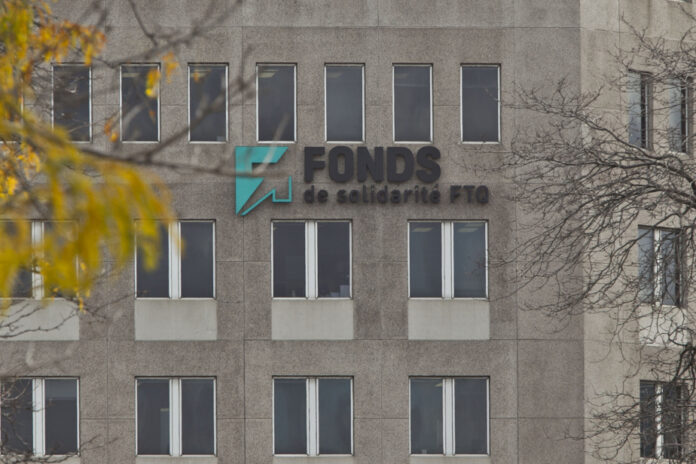(Quebec) The tax credit that accompanies the purchase of shares of the Fonds de solidarité FTQ and Fondaction will no longer be automatic for the wealthiest. Quebec makes it conditional on a ceiling set according to the annual salary of individuals and extends the minimum holding period for securities, which increases to five years.
More specifically, workers who earned more than $112,655 in 2022 – a threshold that will be indexed annually – will no longer be eligible for the tax measure offered by labour-sponsored funds, whose mission is to invest in the Quebec economy. The changes announced Tuesday in Finance Minister Eric Girard’s budget will take effect as of the 2024 tax year.
By excluding wealthier employees, around 60,000 new savers should benefit, according to estimates by the Legault government.
“The idea is to allow access to a greater number of people, said Minister Girard, in a press briefing. Workers in the higher (salary) brackets opted for the maximum (of contributions) and the amount was smaller in the lower brackets. »
What do you think of this budget from Minister Eric Girard?
At a time when subscription periods are getting shorter among labour-sponsored funds due to strong demand, Quebec believes that a rebalancing was necessary in order to give less fortunate workers more time to save to obtain shares. An individual who invests in a labour-sponsored fund benefits from a tax credit that corresponds to 15% of the amount of the transaction – capped at $5,000. The fiscal measure cannot exceed $750.
There were more than 1 million shareholders distributed among the Fonds de solidarité FTQ Fondaction in 2021, according to government data. Both organizations collected over $1.5 billion in contributions, which represented about 12% of total RRSP deductions in Quebec.
The president of the Confederation of National Trade Unions (CSN), Caroline Sasseville, who is also president of the board of directors of Fondaction, has nothing against the changes. However, she would have liked to see Quebec go a little further.
“We are not questioning the cap (on the annual salary), but we would have liked to see the government give us the right to issue more shares,” says Ms. Senneville. We reach the ceiling quite quickly and this slows us down in our investments. »
Among other changes, Quebec is increasing the holding period for a share in a labour-sponsored fund to five years. She is currently two years old. The objective: to “combine the objectives” of organizations that want to offer “patient capital to Quebec companies”. In general, a shareholder cannot demand the redemption of his shares before the age of 65.
“We’re taking a few years off savers who wanted to buy shares and take advantage of the non-refundable tax credit before they retire,” said EY tax partner Stéphane Leblanc.
The extension of the minimum holding period will take place gradually. A year will be added on June 1 of each year until 2026.
Finally, the Legault government is tweaking the missions of Fonds de solidarité FTQ, Fondaction and Capital régional et coopératif Desjardins (CRCD), in particular to promote the benefits of savings to workers.
In the case of Fonds CRCD, half of the eligible investments must be made in eligible cooperatives or in regions of the province. This proportion is currently 35%. As for the two labour-sponsored funds, the Legault government issued guidelines that appeared indirectly in their investment strategies. For example, they are being asked to focus on investments that boost productivity and the circular economy.
“Job creation was in the mission of the funds when they were created,” says Ms. Sasseville. It’s less of a problem now. »















